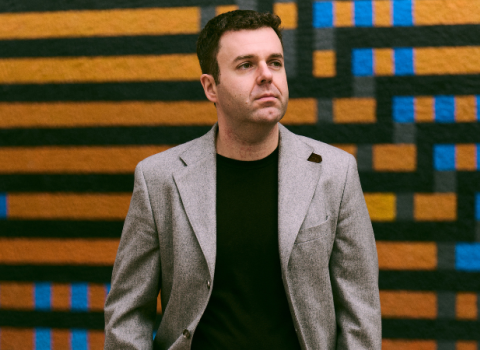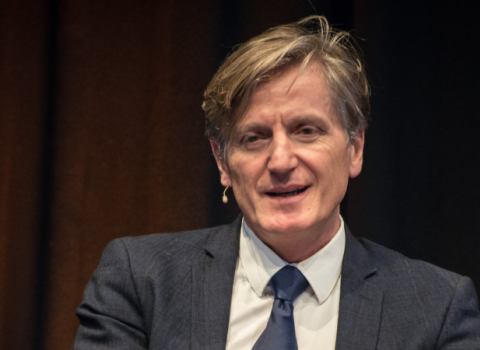The European Institute of Innovation and Technology (EIT) must ditch some of its suffocating red tape, improve on gender balance and sell itself better, EU Education Commissioner Tibor Navracsics told its conference in Budapest on Monday. “The EIT has had growing pains,” Navracsics said. Now reform “needs to be pushed further and faster”.
The Hungarian Commissioner said the EIT funding model could be “a bit of a jungle,” adding, “We have to find a way to make it simpler.”
And he promised that as EIT works to improve, “The EIT Governing Board, its administration and the KICs [Knowledge and Innovation Communities] know that they have my total support.”
In his address to the conference, EU Research Commissioner Carlos Moedas, said his proposed new body, the European Innovation Council (EIC), will not compete with the EIT.
“I’m asking you not to fear where your place will be alongside the EIC, but to define it. The EIT has done a great job,” he told delegates.
The two Commissioners took to the stage two weeks after the publication of a critical report by the European Court of Auditors raised questions about EIT’s progress.
One recommendation of the report was to ditch the annual cycle of EIT funding, which it said is a major handicap for smaller companies with tiny cash reserves. Navracsics agreed with this, saying switching to a multi-year grant structure, “may not sound very exciting, but it is crucial [to] bringing support to innovators more quickly.”
But the EIT’s biggest challenge is in demonstrating how it triggers innovation. To demonstrate the Institute is working, “We have to make results more tangible in order to convince the public,” said Navracsics.
In addition to the recommendations in the auditors’ report, the Commissioner called on EIT to improve its gender balance. Of 17 EIT nominees competing for entrepreneurial awards at the conference, only three were women. “We can do much better. I look forward to seeing real progress at next year's event,” Navracsics said.
Recent difficulties aside, Navracsics described the EIT as one of the biggest achievements of the EU. “No other comparable European programme can support a student to graduate as a Master in Poland, to receive a PhD in Sweden, to create a start-up in Spain,” he said.
The EIT, formed in 2008, pools the expertise of universities, research bodies and companies in KICs focusing on renewable energy, climate change, health, raw materials and new-generation IT projects. The KICs are charged with training young entrepreneurs, creating new products and services and forming spin-outs. EIT is backed by the EU with a budget of almost €3 billion.
Auditors report is a weapon
Elpida Keravnou-Papailiou, the first Rector of the Cyprus University of Technology and a member of the EIT governing board, said the auditors’ report is “a weapon” which can be used to argue for better conditions.
Ken Gabriel, president and CEO of the Charles Stark Draper Laboratory, a US not-for-profit research and development organisation, headquartered in Cambridge, Massachusetts, said that to realise its potential, the EIT needs autonomy from the European Commission. “You have to give it independence and it has to be organised for speed and agility,” he said.
Gabriel particularly rates the Climate KIC. “You have a better chance of being successful with a green [venture] in Europe than in the US,” he said.
Entrepreneurs back EIT
If the EIT has still to prove that its existence makes a real difference, it is not failing to encourage fresh-faced students. “Without the EIT, I’d still be doing research,” said Chris Emmott, who has just completed a PhD on solar energy at Imperial College London.
He is now helping bring cheaper energy to off-grid villages in Africa. Next month, he will join a company in Uganda called Fenix International, which makes simple and portable pay-as-you-go solar tech. “It’s a start-up out of Silicon Valley actually. I’m not sure EIT will be so happy about that,” he said.
Emmott previously ran a pilot in Rwanda with rudimentary plastic solar cells. “We velcro-ed the panels onto tin roofs, but they only lasted around six months, which was useful for us to see where the failures were,” he said.
Plastic solar cells will take off eventually, he envisages, but a leap forward is “still a bit off in the future”.
Arno Zimmerman, co-founder of Germany’s Coolar, which develops solar-powered fridges for cooling vaccines, said the EIT provided him with all round support including, “coaching, funding and outreach to the media.”
Andreas Kunze, CEO of Konux, has built a smart sensor which can measure faults and attrition in infrastructure such as railways. It is one of the more successful EIT-backed companies, raising almost €7 million from investors.
Several industries are out of touch with the digital world. “Some sectors remain surprisingly outdated,” Kunze said, citing engineers resting their ears on a pump to hear if it has any internal problems. “You would never believe it. We talk about Industry 4.0, but in some places we are far away from that.”
Karens Grigorjancs’ Plugify, provides a platform for bands, which he refers to as the, “Airbnb of live music”. If it was not for his EIT course at Delft University of Technology, “I’d never have become an entrepreneur – I’d probably be an IT consultant,” he said.
Genevieve Bergeret is sales manager with ProctorExam, a Dutch company based on the slightly unnerving premise of supervising people through a webcam as they sit an online exam at home. “Our 360-camera can check to see you’re not doing something you shouldn’t be doing, like reading notes off a post-it,” said Bergeret.
For Bergeret, membership of the EIT allowed her company to connect to a large network and meet people from electrical giant Philips and oil major Shell.
Florian Schneider co-founded a Dutch start-up called Nerdalize which heats homes using computer power. The idea is that private households fit special radiators which double as severs that companies can rent space on.
The unusual company name “has been useful for getting attention”, said Schneider. It originated from a quip by Schneider’s co-founder, who said, “If you put a hundred laptops in a room you heat it with nerd power.”
Schneider said the EIT’s coaches, “Put their fingers on the pain points in our business plan. They also forced us to be ruthless and find customers and investors.”
Nerdalize is one of a number of small companies to have taken the computer heat idea forward. “It’s good we have competitors – it’s a sign we’re not the only crazy ones,” said Schneider.





 A unique international forum for public research organisations and companies to connect their external engagement with strategic interests around their R&D system.
A unique international forum for public research organisations and companies to connect their external engagement with strategic interests around their R&D system.